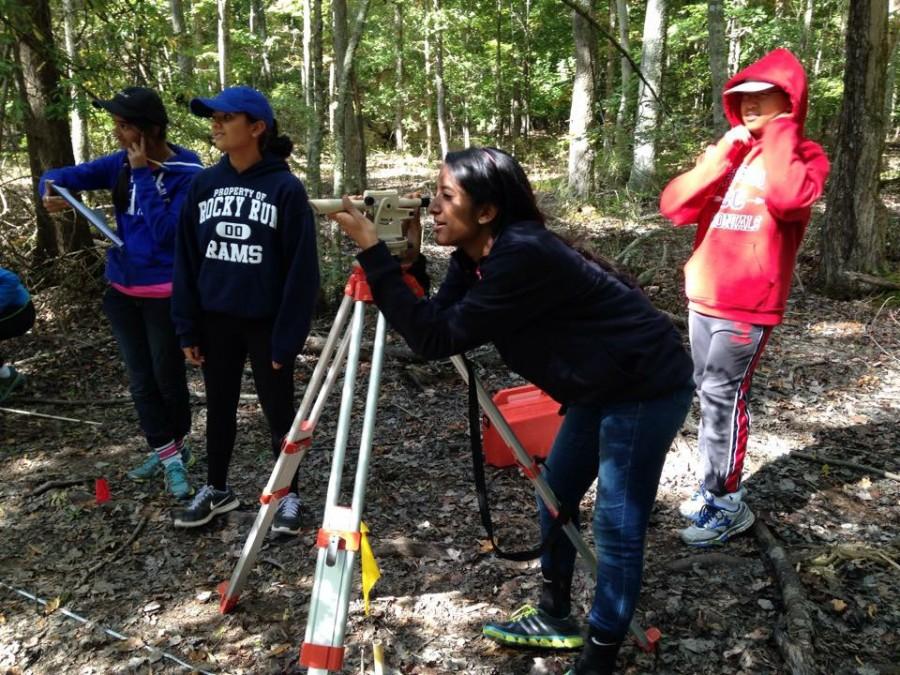Freshmen continue year-long IBET research project
photo courtesy of Soren Christensen
Freshmen on their annual IBET field trip practice collaboration skills that they will use for their IBET project.
February 18, 2015
Collaboration is an essential part of the Jefferson experience. It involves working cooperatively in groups to explore and pursue new ideas. All freshmen start this journey of collaboration with the Integrated Biology, English, and Technology (IBET) project, a year long group research project that connects the core aspects of each subject. Currently, all freshmen at Jefferson have been assigned their IBET groups and have made varying levels of progress on their research and experiment.
However, in order to complete the project successfully, all groups must have one key element: teamwork. Teamwork encompasses many different working parts to produce a successful end result. The most important of these is communication. Getting and staying connected is crucial to meeting deadlines, as well as sharing and reconciling ideas.
“The best way to communicate for our group is online. It’s really easy to all meet up and communicate that way, especially using Google Docs,” freshman Nick Begotka from Holman IBET said.
In addition to developing communication skills, IBET teams strive to make sure everyone contributes equally to the project. “We decide on times to meet online, and then during our work sessions we brainstorm together, to avoid one person’s idea not being represented,” freshman Lulu Lin from Wood IBET said.
Compromising four busy schedules to plan a common meeting time is a challenge all IBET teams face. Planning ahead and completing assignments before the due date is vital to finishing assignments on time so that any last minute adjustments can be made. “We try to set our own deadline as one day before the due date, so there is some buffer time.” freshman Paarth Jain from Wood IBET said.
Finishing assignments in advance also allows students an advantage with teachers. Many teachers pre-check assignments, and having assignments done early help students improve their paper and turn in a better final product. “Teachers want you to do well, so check your papers with them before the due date to see if you’re filling all the requirements,” freshman Kamron Soldozy said.
However, aligning times to meet is hard when each team member is balancing days packed with assignments, sports, and other extracurricular activities. As a solution, certain teams have developed ways to multi-task while working around busy schedules.
“We make checklists with information we want to do for the assignment, and have different team members come online when they’re free to fulfill tasks and cross-check previous work.” freshman Saket Bikmal said.
Communicating effectively, multi-tasking, dividing work evenly, and learning to combine ideas and contributions of each team member are a few of the necessary elements that make IBET group work successful. Though problems are part of any assignment, it’s important to solve them as a group and move forward.
“Get together and meet in person, because it really helps,” Begotka said. “If there are problems, talk through what is wrong and how to fix it, then fix it.”






